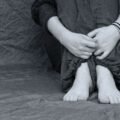Testimony from three witnesses knowledgeable of the U.S. government’s dealings with unidentified anomalous phenomena (UAP), including firsthand accounts from Navy pilots and allegations involving the retrieval of craft of non-human origin, were presented before members of Congress on Wednesday.
The widely anticipated Congressional hearing, held by the Subcommittee on National Security, the Border, and Foreign Affairs, featured testimony from two former U.S. Navy pilots and a former intelligence officer who worked with the UAP Task Force.
“This is an issue of transparency,” said Representative Tim Burchett (R-TN) during opening remarks. “We can’t trust a government that doesn’t trust its people.”
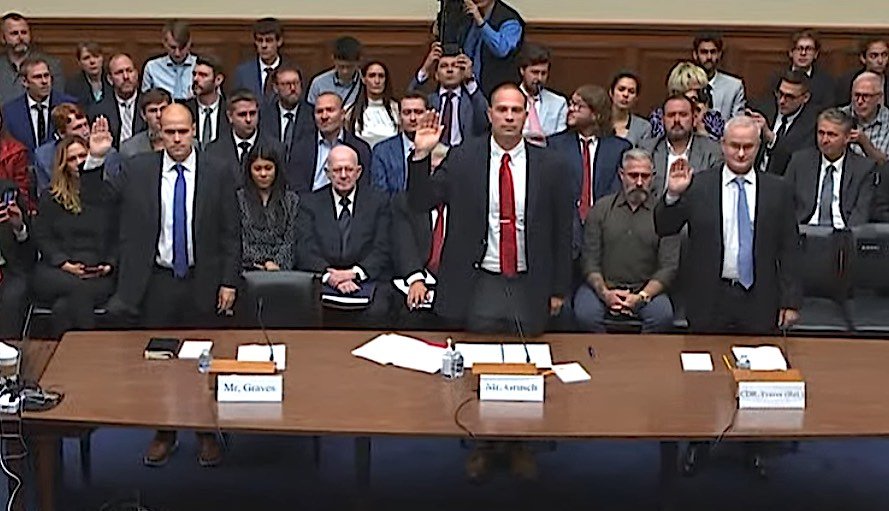

Representative Anna Paulina Luna (R-FL), speaking after Burchett, referenced “mountains of classified documents that have been withheld from the American people,” citing widespread public belief that significant amounts of information about the U.S. government’s UAP investigations are being withheld from Americans.
“From my personal experience, I believe the same thing,” Luna said.
“Today is the first hearing of its kind that will attempt to get to the bottom of what’s behind UAPs,” Luna said, noting that she and other Representatives were recently denied information during their inquiries on the matter.
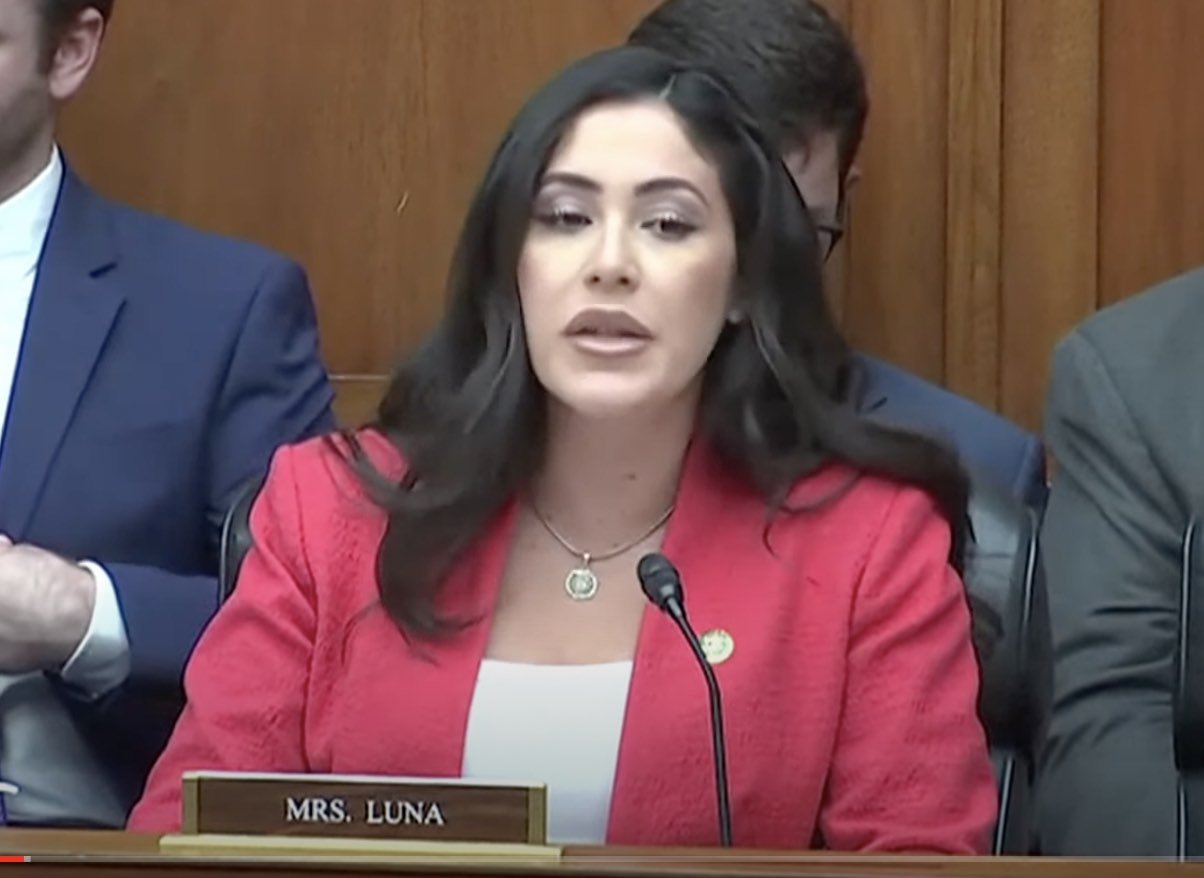

“The American public has a right to learn about technologies of unknown origins, non-human intelligence, and unexplained phenomena,” said Representative Jared Moskowitz (D-FL), referencing language recently used in a statement by Senate Majority Leader Chuck Schumer, who has joined the push for transparency on the issue with the presentation of a proposed amendment to the forthcoming National Defense Authorization Act.
Moskowitz also cited concerns over possible special access programs, weapons development, and other government activities that Congress and the American public should be informed about.
The first of the witnesses to speak, former fighter pilot Ryan Graves said during his opening statement that he and fellow members of U.S. Navy Fighter/Attack Squadron VFA-11 had similar encounters off the U.S. Eastern Coast between 2014 and 2015.
“Upon an upgrade to our radar system, we began to detect unknown objects in our airspace,” Graves said. “Initially dismissed as software glitches, we soon corroborated these radar tracks with infrared sensors, confirming their physical presence.”
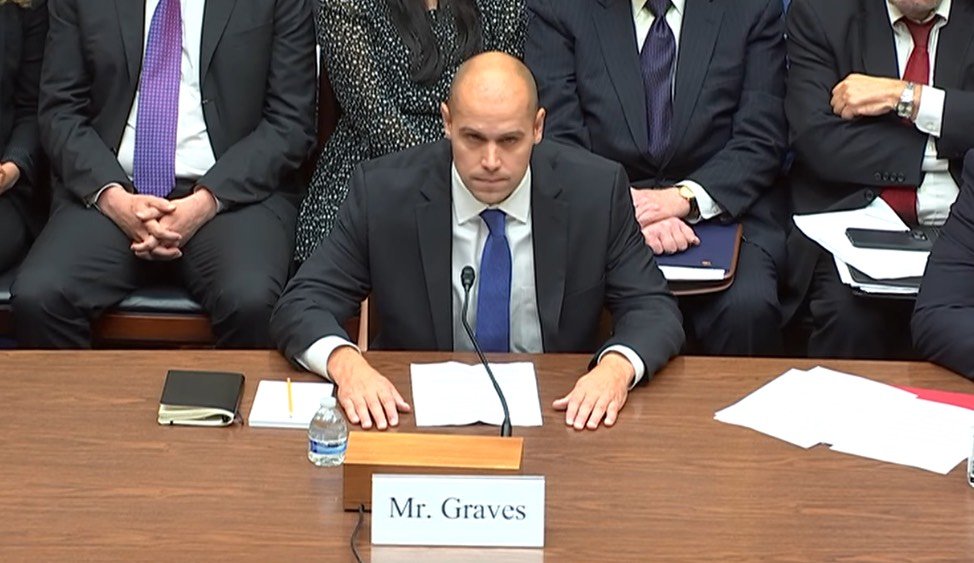

Graves said his squadron’s encounters with UAP became “so frequent that they became part of daily briefs.” Since retiring from military service, Graves founded the advocacy organization Americans for Safe Aerospace to raise awareness about pilot safety issues resulting from UAP.
David Grusch, the whistleblower behind a PPD-19 Urgent Concern filing with the Intelligence Community Inspector General first reported by The Debrief in June, said during Wednesday’s hearing that he came forward based on credible information others had conveyed to him about an alleged government program involved in the recovery of craft of non-human origin.
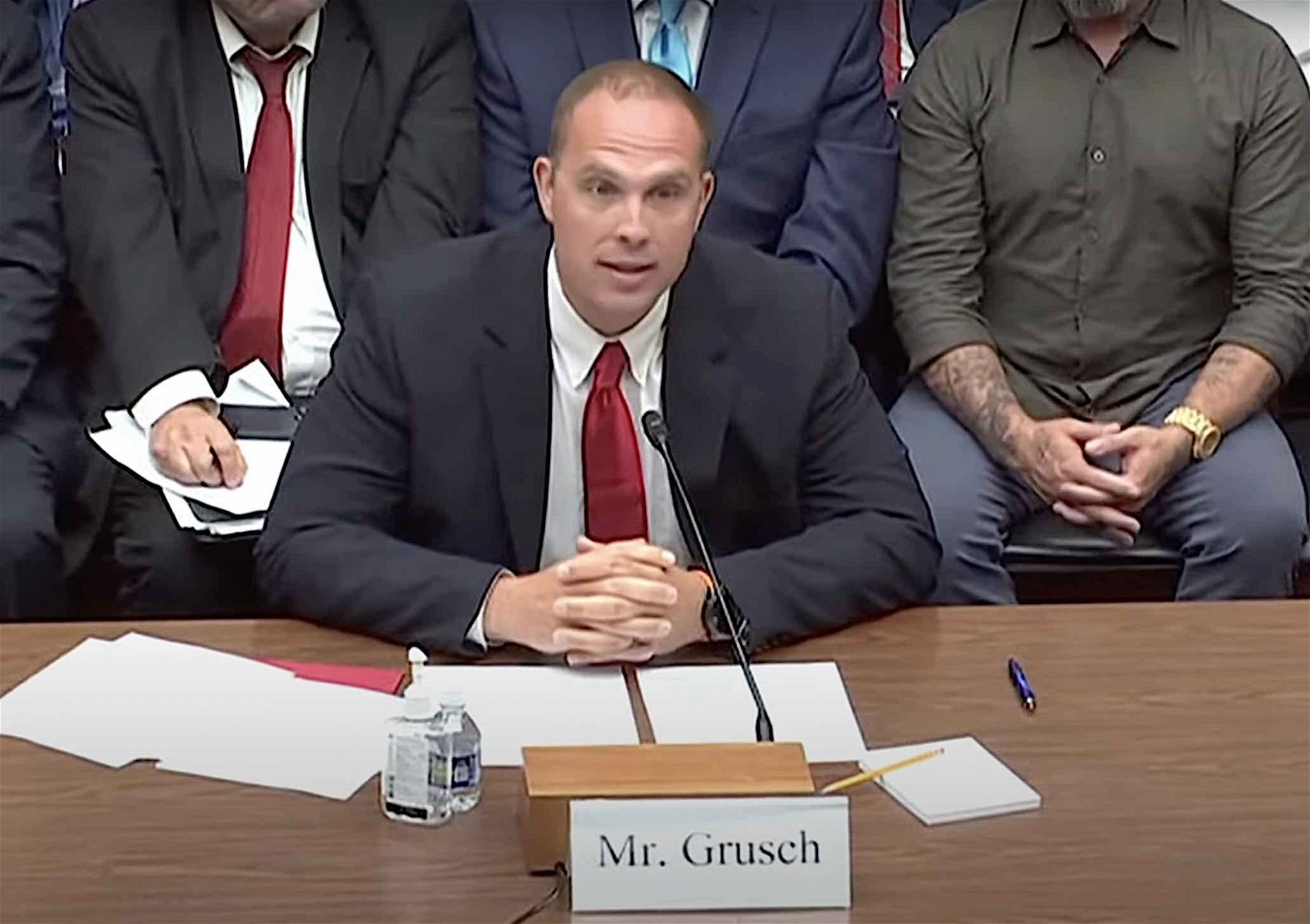

“My testimony is based on information I have been given by individuals with a longstanding track record of legitimacy and service to this country – many of whom also shared compelling evidence in the form of photography, official documentation, and classified oral testimony,” Grusch said during opening statements.
“I have taken every step I can to corroborate this evidence over a period of four years and to do my due diligence on the individuals sharing it,” Grusch said, “and it is because of these steps that I believe strongly in the importance of bringing this information before you.”
Notably, Charles McCullough, former Intelligence Community Inspector General and the attorney now representing David Grusch, according to several sources The Debrief has spoken with on background, appeared to be present among the attendees seated behind Grusch during the hearing.
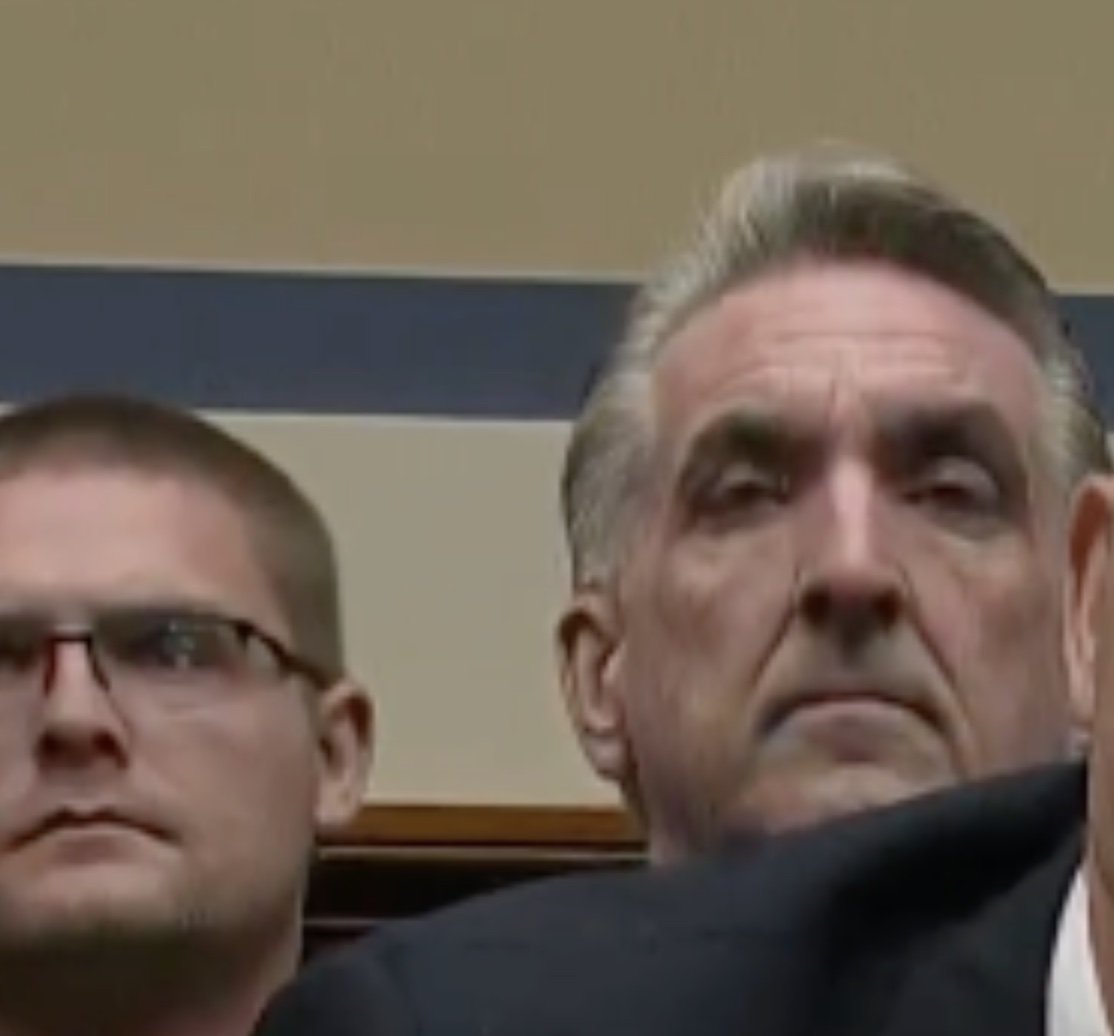

In June, The Debrief reported that Compass Rose Legal Group, who had previously represented Grusch, was no longer formally working in this capacity.
During his opening statement, Rt. Commander David Fravor, the former Commanding Officer of the Navy’s Strike Fighter Squadron Forty-One and one of the pilot witnesses to give testimony during Wednesday’s hearing, recounted his participation in a 2004 incident involving an encounter with an anomalous aerial object off the Baja California peninsula.
“We saw a small white Tic Tac-shaped object,” Fravor said during his opening statement, “moving very abruptly over the white water.”
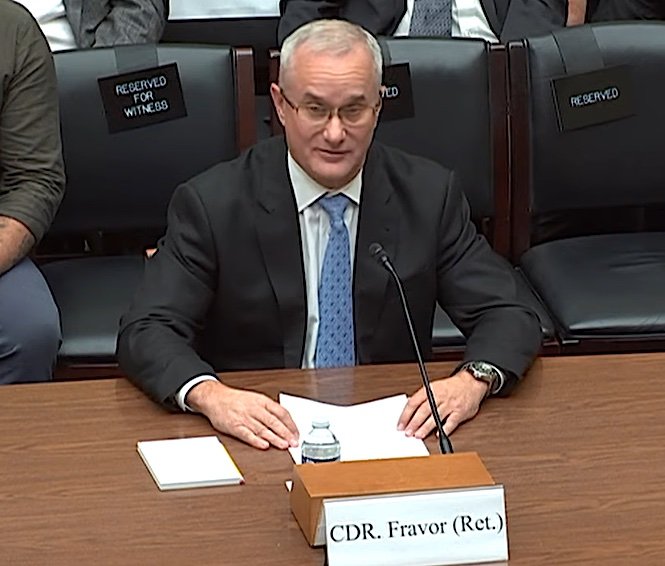

“There were no rotors, no rotor wash, or any visible flight control surfaces like wings,” Fravor said, describing an event that has since become one of the most talked about UAP encounters in recent years, noting that multiple radar detections of UAP preceded the observation he and his fellow pilots made, thanks to the upgraded radar systems U.S. Navy Carrier Strike Group 11 had recently received.
Following opening statements, Graves led off the hearing by emphasizing the need for having a formal reporting system through which military personnel can report UAP encounters, in addition to the necessity of removing stigmas that have hindered reporting in the past.
“They do not have any reporting system they can send this to,” Graves said of both military and commercial aviators.
“It’s actually a travesty that we don’t have a system to correlate this and actually investigate,” Fravor added.
“The commercial pilots who have reached out to me,” Graves said, “are doing so because they don’t feel there is another safe means to do so.”
Apart from situations involving pilots who have encountered UAP, several questions on Wednesday addressed Grusch’s recent claims involving the alleged recovery of crashed vehicles of exotic origin. Specifically, when asked if he thought the U.S. government was in possession of UAPs, Grusch said he believed it was a certainty.
“Absolutely, based on interviewing over 40 witnesses over four years,” Grusch said, adding that several of the individuals who provided him with this information also provided testimony that was included with his complaint to the Intelligence Community Inspector General.
“I have to be careful what I say in detail,” Grusch also said, referencing reprisals he says he has experienced since coming forward with his claims.
When asked if he had knowledge of individuals who had been threatened or harmed in relation to UAP investigations by the U.S. government, Grusch replied that he had; a significant new claim made under oath by the whistleblower since first coming forward in June. When pressed about further details, Grusch said he could not elaborate in an open hearing.
Grusch also said he has received “overwhelming support” from his colleagues and former coworkers, although he cited “active planned reprisal activity” against him and others from “certain senior leadership” at agencies he had been associated with.
“I call it administrative terrorism,” Grusch said.
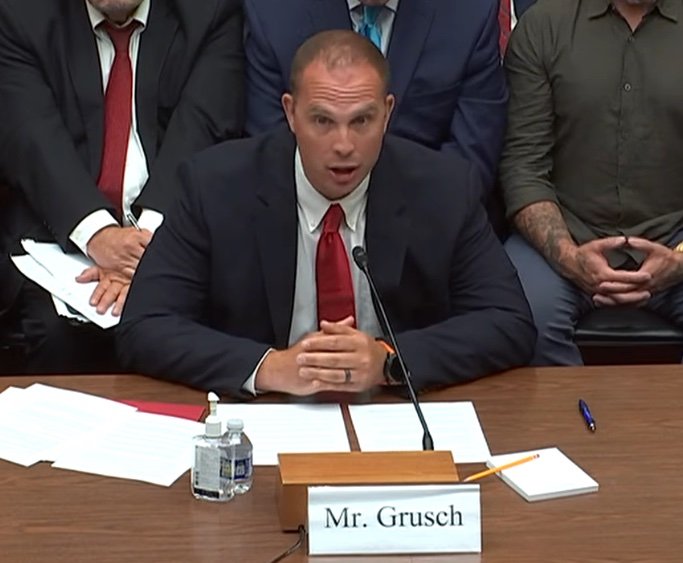

Along similar lines, Graves subsequently spoke about reports he had received from pilots who said they had been issued cease and desist orders from their employers or others attempting to prevent them from speaking publicly about UAP observations they had made.
In another significant statement made under oath, Grusch, when asked whether he had personal knowledge about craft of non-human origin, stated that he has “personally interviewed those individuals.”
Grusch followed with references to satellite imagery he reviewed while working with the National Geospatial-Intelligence Agency (NGA), of which he said there had been phenomena he observed that he was unable to explain.
Grusch also challenged previous statements by Dr. Sean Kirkpatrick, director of the DoD’s All-domain Anomaly Resolution Office (AARO), which have conveyed that his Office has seen no credible information that appears to point to evidence of extraterrestrial technologies.
Asked about specifics involving the alleged government UAP programs and the individuals or corporations involved with them by Rep. Burchett, Grusch was careful with the wording of his responses, noting that much of the specifics could not be discussed in an open hearing.
Grusch did, however, express that he personally knew individuals who were harmed as a result of UAP encounters, and also alluded to having personally experienced unsettling circumstances.
“What I personally witnessed, myself and my wife, was very disturbing,” Grusch said (Editor’s Note: It remains unclear what Grusch was specifically referring to here, although this statement may have been in reference to “reprisal activity” Grusch says he has experienced since coming forward with his ICIG complaint and its related claims).
In what was arguably one of the most explosive claims made under oath during Wednesday’s hearing, when asked by Representative Nancy Mace (R-SC) whether the remains of UAP pilots had ever been obtained by the U.S., Grusch also stated that “biologics came with some of these recoveries” involving alleged craft of non-human origin.
Speaking of his own encounter, Fravor said he thinks the object he observed in 2004 “defies current material science,” calling it “the most credible UFO sighting in history.”
“There’s four sets of human eyeballs,” Fravor said, citing the collective experience of all four pilots who were involved at the time of the sighting.
“The world needs to know that,” Fravor said. “It’s not a joke.”
Graves, Fravor, and Grusch all agreed that it seems possible such UAP encounters could represent intelligence collecting efforts by an unknown technological presence which could potentially represent a threat, with Graves adding that continued conversation and reduction of stigma will be vital going forward and that UAP represent a problem for the scientific community as well.
“It is a scientific and engineering problem, as much as it is a national security problem,” Graves said.
Speaking to Rep. Burchett, Grusch said that he knew of injuries that resulted from work involving UAP legacy programs, adding that he was personally aware of individuals who were currently working in such programs that would be willing to testify in a closed setting. Notably, during the hearing, Rep. Andy Ogles (R-TN) also proposed invoking the Holman Rule against any entities withholding access to information about programs involving UAP or purported craft of non-human origin from Congress.
Burchett, thanking the three witnesses, said they had “endured criticism and derogatory remarks, and we’re trying to get to the bottom of it.”
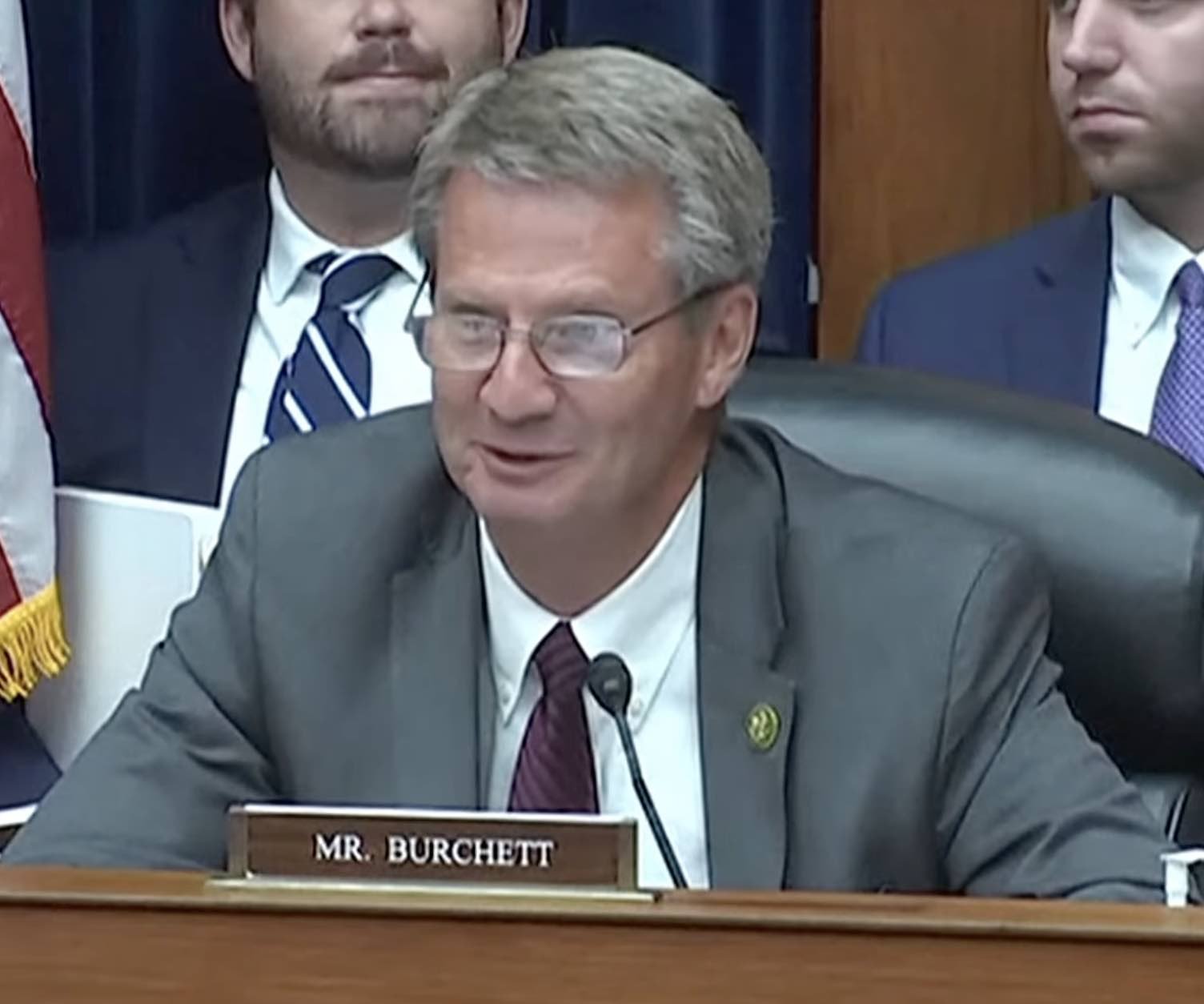

Asked how the public can contribute to reporting on UAP, Graves said encouraging conversations and collection technologies would be beneficial, while Grusch encouraged other potential Whistleblowers to come forward “in a legal way” to join him in the discussion.
“Stick to the facts, write it down, and don’t speculate,” Fravor advised would-be UAP witnesses who are considering coming forward about observations and experiences they have had.
In closing, Burchett acknowledged the precedent set by Wednesday’s hearing and the testimony the witnesses provided.
“We made history today,” Burchett said.
Micah Hanks is the Editor-in-Chief and Co-Founder of The Debrief. He can be reached by email at micah@thedebrief.org. Follow his work at micahhanks.com and on Twitter: @MicahHanks. Tim McMillan also contributed reporting to this article.

